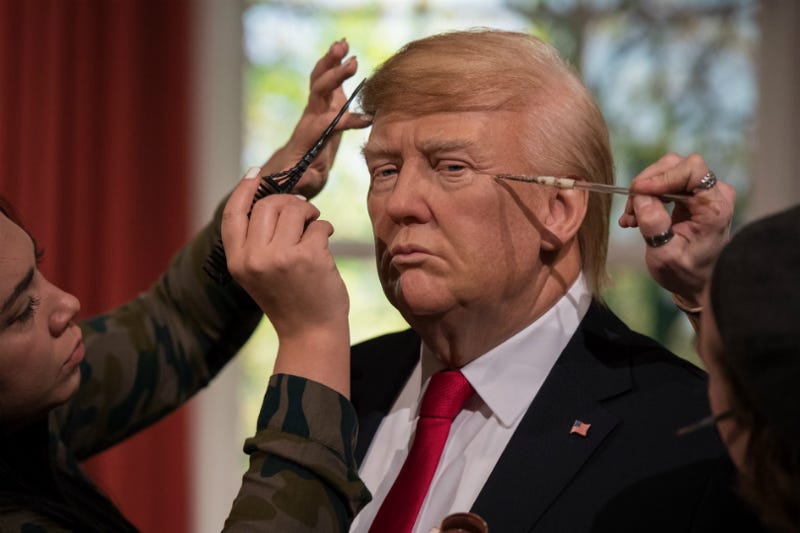This article first appeared in Business Insider.

It’s been just over 100 days since I relocated back to Australia to join the incredible gang at Airtree Ventures. I had previously worked with the London-based Summly until our acquisition by Yahoo (California based), and then as a venture investor at White Star Capital (New York and London based). As a result of these experiences, I was privileged to have an insider view on the growth of the London and New York tech communities.
I wanted to share my impressions of the Australian startup scene while the comparison is still fresh and relevant.
Firstly, what an awesome bunch of people you are. THANK YOU all for the incredibly warm welcome. We may be a relatively small community still, but the people in Aussie tech are some of the warmest, most welcoming and most generous with their time I’ve ever come across. I’m stoked to be here and couldn’t be more excited to try and help great Australian startups grow.
So, some initial observations:
World class entrepreneurs
Australian entrepreneurs and tech companies are unquestionably world class. We sit in a far flung corner of the world and and it can be hard to gauge how we compare globally, particularly at the early stage. I can confidently say that I have met with local seed stage businesses which are easily on par with the best I’ve seen in other locales. The same is true at Series A and B. While there are obviously fewer true Series B+ businesses here, companies like Prospa, Canva, 90 Seconds and Pet Circle would all look right at home in any leading global startup grouping.
More funding than ever before
After an Australian VC dark age prior to 2012, investors are pouring back into the sector. There is apparently now ~$2B of local venture capital funding available for Australian startups. This is great news. My experience elsewhere is that there will always be people saying there’s not enough money — that is the chorus cry of literally every startup ecosystem in the world. But I think it’s fair to say that there is enough capital to fund any good Australian idea for the next few years.

Source: Pitchbook
Perhaps equally encouraging is the interest from overseas funds. We’ve seen Accel, Index Ventures, Tiger Global, Horizons Ventures and others invest in the last 12 months. And since moving back, I’ve been approached by many friends at large international funds asking for intros to local startups, at least one of which has resulted in an (unannounced) funding round. Aussie tech is no secret to great investors on foreign shores!
The best companies are laser focused on product. Then there’s the rest.
Like everywhere, the best Australian startups live and die by their products. They are obsessed with delighting their customers and this obsession plays out through the products they build. One observation is that on average, Australian startups have a higher emphasis on sales than their peers in London and New York. They also tend to be achieving slightly higher levels on monetisation when raising their angel/seed rounds (though this effect goes away at Series A). This might be a hangover from a less ebullient funding environment in the past; I’m not sure. But all Aussie founders should remember that, in the long run, customers (and investors) will recognise and reward the better product over the better sales effort.
We are crying out for talent
Let’s not beat around the bush: we have a talent shortage. The number one priority of every promising Australian startup I speak to is hiring great talent. We simply don’t have enough super smart engineers, growth hackers, designers and operations folks; particularly ones who’ve been part of a scale-up journey. This scarcity of talent isn’t unique to Australia by any means (I wonder what will happen in London post-Brexit!), but it’s a limiting factor on the speed at which our ecosystem can grow. No amount of funding solves a talent gap in the short term.
Rethinking educational curricula, government incentives to lure large tech companies (their engineering, not just sales offices!) and updated visa regimes would help. As would a national dialogue which encourages our smartest graduates to pursue computer science rather than, say, finance. Organisations like Entrepreneur First in the UK have had a huge impact on making founding a startup the preferred choice of talented graduates over, for example, joining McKinsey or Google. We would benefit greatly from similar programs.
Policy: some good first steps
The policy environment for startups is improving. The Federal Government’s Innovation Statement was an important step. The tax incentives to encourage angel investment are modelled on the SEIS/EIS schemes in London which saw an explosion in angel and seed financed companies as a result. We must continue this momentum. There is work to be done around stock options, capital gains, the ESVCLP rules, bankruptcy, governance, workplace relations and more.
I worry about the recent statements of some politicians that the innovation agenda doesn’t resonate with “ordinary Australians”. We’re not innovating because it’s cool, we’re doing it because the future of our country relies upon it!
Geographical distribution
The Australian startup community is geographically dispersed. It has never been easier to start a software company from anywhere and, while the greatest concentration of companies is in Sydney and Melbourne, there are certainly other important centres of activity. Examples can be seen in Adelaide, where Techstars just announced its first Australian-based accelerator, and Townsville from where Safety Culture recently announced a large international funding round.
This geographical distribution is both an opportunity and a challenge. The experience of London and New York (and Tel Aviv, Berlin and many other emerging tech hubs) is that a geographical focal point with critical mass is key. Berlin is particularly instructive here: its scene is leagues ahead of Munich, Frankfurt, Bonn and other German cities. One off companies can come from anywhere, but it is true startup ecosystems with angel investors and mentors, serial entrepreneurs, a deep and experienced talent base and follow on funding that generate multiple, repeatable success. London’s “silicon roundabout” in Shoreditch is a great example of this and I would encourage the creation of innovation precincts. This should be the focus of State governments (NOT trying to lure companies to relocate from other states via grants!).
Bad behaviour and signs of immaturity
There are some aspects of the startup funding scene in Australia which demonstrate its immaturity:
First, terms. There are still some early stage deals being done on unusual terms (e.g. seed stage companies with >1X liquidation preferences, anti-dilution ratchets etc.). The good investors internationally invest on almost identical terms at the early stage. Many publish them (e.g. Seedsummit and YC’s suite of SAFE docs). Some Australian investors do the same (e.g. Airtree worked with AVCAL to develop open source seed docs) but many still don’t.
Second, the number of middlemen. I’ve been surprised by the number of early stage companies here using advisors to help them fund-raise. Professional fund-raisers are extremely rare in more established startup markets. We saw them occasionally in London (though never representing the great companies), sporadically in New York and it’s almost unheard of in Silicon Valley . The good VC firms in each of those markets steer well clear. Counterintuitively, using an advisor can actually decrease a startup’s chances of raising from great investors. I explain why here. In more established ecosystems, the typical pattern is for angel investors to back a startup and then introduce it to VCs or other investors at the right time. The best startup advisor is one who puts their money where their mouth is — they never charge fees to help out!
Third, ASX listings. The concept of a backdoor listing for an early stage company was completely unfamiliar to me until I returned to Australia. It also makes no sense to me. Why would an early stage company want to share info with competitors, take on the costs and burden of public compliance and reporting requirements, or suffer the burden of a variable stock price and its impact on employee morale and retention? High failure rates of listed tech companies will also reduce public confidence in the sector, hurting good companies who should rightly go to IPO. I hope this stops now that so much private funding is available. I’m embarrassed when I tell overseas investor friends about backdoor tech listings. They make us all look bad.
We need a new national dialogue which celebrates entrepreneurship.
While this is slowly changing, failure is still seen as a black mark in Australia. In my first few months, I’ve attended enough cocktail parties with corporate big wigs to understand that, while ‘startup experience’ is encouraged, it’s seen more as a hobby or distraction than a serious, multi-year pursuit. Working in a startup seems akin to a gap year, something ‘one gets out of one’s system’. My friend Rohan described a similar phenomenon in the UK. And if an entrepreneur is successful, tall poppy syndrome is all too prevalent in our conversations. Australians will much more readily tell you why your idea won’t succeed than why it just might.
This must change. We need a national dialogue celebrating entrepreneurship. The government-sponsored Tech City played a huge role in reshaping the dialogue in the UK. This is a critical area where the Australian government’s marketing might and mouthpiece can make a real impact. It hasn’t been necessary in the US, of course, where entrepreneurs carry a rock star status.
U.S. obsessed

Our startup community is obsessed with Silicon Valley. Anything Californian is revered. For certain companies, this makes total sense. Australia is geographically and demographically similar to the US, and so it is a logical expansion market for products that work here. However many others would benefit more from, say, deeper bridges to Asia. This is a real gap in our market.
Silicon Valley is the global Mecca for innovation — we have much to learn from there. However, as we look to grow our ecosystem, I would argue that the Australian startup scene has much to learn from other places too. Silicon Valley is unique and it would be unproductive to simply try and replicate a community which has grown organically over 50+ years.
We should look to a variety of successful case studies and take the best from each: the growth of London’s fintech cluster; New York’s fashion and media sectors; the circumstances in Scandinavia which gave rise to Supercell, Transferwise and Ayden; Lisbon attracting Web Summit; Tel Aviv punching astronomically above its weight in deep tech; Dublin attracting the international HQs of almost every major US tech company; Berlin’s startup ecosystem literally exploding in the last 5 years.
Each of these places have deliberately set out to foster innovation, and focused on leveraging local factors which provide a competitive advantage. We should do the same.
So what?
So what does all this mean? It means it’s an exciting time to be a part of the Aussie startup scene. We have a HUGE opportunity to fundamentally reshape the Australian economy by creating new jobs and innovating to solve really hard problems. We have world class entrepreneurs to do it and more funding than ever to support it. We have some challenges in front of us: a talent shortage, a shift in the national dialogue, some lingering bad behaviour and a number of geographically disbursed communities to unite. But all of these are eminently addressable and we have examples to inspire us and a unique path to forge for ourselves.




